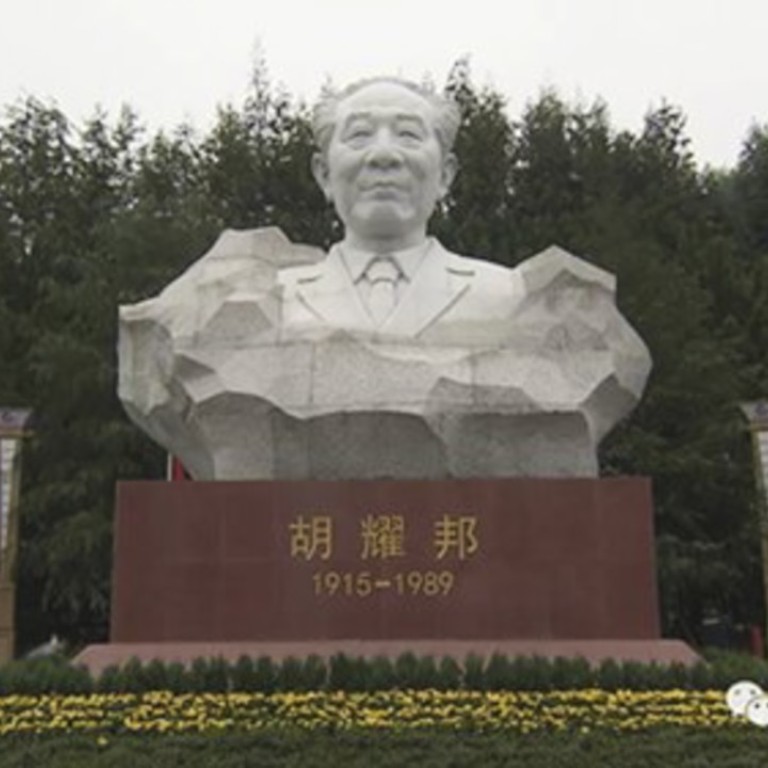
Liberal Chinese leader Hu Yaobang rises from the past with official statue in hometown
- Hu’s death was one of the sparks for the Tiananmen Square protests; now the Communist Party is burnishing his reformist image
A statue of reformist Communist Party leader Hu Yaobang has been officially unveiled in his hometown in southern China, almost three decades after his death helped ignite protests in Tiananmen Square.
Friends and family were at the unveiling in Liuyang, Hunan province, on Sunday, an event that was initially only covered by local news outlets but was soon picked up by online media, including liberal discussion groups.
Hu, who held the party’s top office and steered the country through political and economic reform in the aftermath of the Cultural Revolution, was sidelined in 1987 for tolerating “bourgeois liberalisation”.
Regarded by many as a liberal, he helped rehabilitate party and government officials persecuted during the Cultural Revolution.
He is also known for initiating public discussion in 1977 over ending the “blind worship” of Mao Zedong and spearheading the country’s push towards a market economy in the 1980s.
Li Zhao, wife of reformist leader Hu Yaobang, dies at 96
The statue of the popular leader was approved by the party’s Central Committee and the State Council, the country’s cabinet, a move observers said could be an attempt to put the spotlight on party unity ahead of the 40th anniversary of China’s reform and opening up.
Alfred Wu, associate professor at the Lee Kuan Yew School of Public Policy at the National University of Singapore, said the unveiling of the official statue showed Hu was becoming a less sensitive name in China, with the party playing up his reformist image, recognising his contribution to the party and playing down his links with Tiananmen incident.
But Wu said he did not agree with some commentators that it was a simply an effort to highlight reform. “[President Xi Jinping] has many platforms to send reform messages recently. He does not need the unveiling of Hu’s statue [to do that again],” he said.
Wu said Hu won support from many cadres who suffered during the Cultural Revolution and recognising him now could be an attempt to placate them.
“The statue will help with unity within the party, especially in view of the tension caused by the anti-corruption campaign,” he said.
The unveiling on Sunday was attended by deputy provincial party chief Wu Lan as well as family and former colleagues of the late leader, Hunan Daily reported.
Chinese President Xi Jinping pays tribute at centenary of late reformist leader Hu Yaobang
Hu Deping, Hu Yaobang’s eldest son, spoke at the ceremony, quoting at length President Xi Jinping’s
speech three years ago to commemorate the centenary of the late statesman’s birth, a person who attended the ceremony told the South China Morning Post.
In 2015, Xi praised Hu Yaobang as a time-tested and loyal communist soldier, great proletarian revolutionist and statesman, outstanding political worker of the military and a prominent leader of the party.
“To commemorate Hu Yaobang is to learn from his noble character of always being true to his belief and dedicated to his ideal,” Hu Deping said, quoting Xi’s comments on his father.
In a show of unity with the party leadership, Hu Deping said in his address that his father’s virtues “are also in line with Xi Jinping Thought”, the source said.

